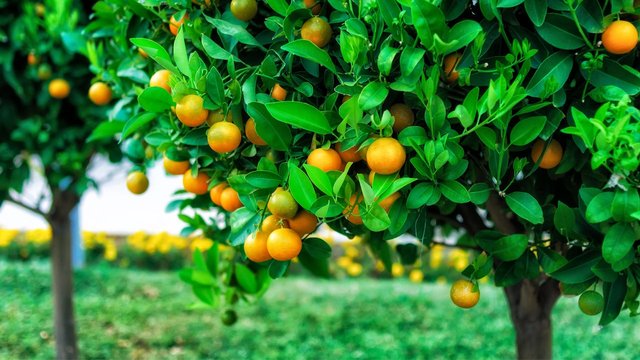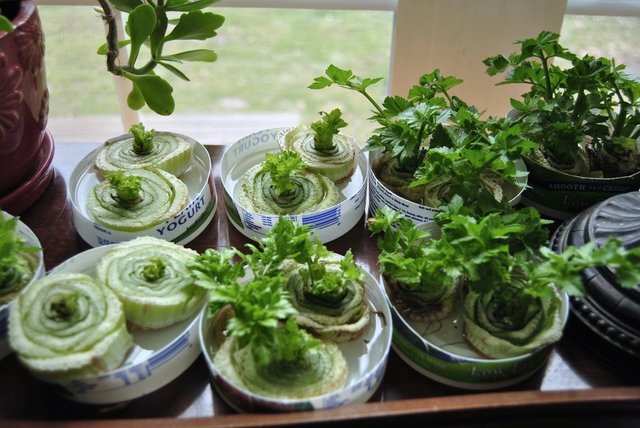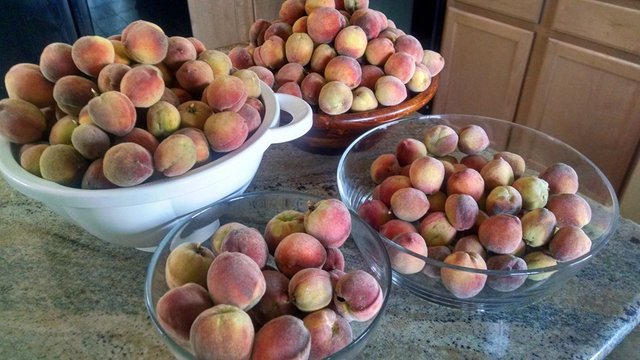How High-Density Urban Gardening Can Change the World

Food Freedom for Your Family
With the ever-rising prices of high quality, fresh, organic produce, there's no time like the present to start high-density gardening. Even if you live in the city and only have a small space, you can use what little space you have to grow your own food and become more self-sufficient. Many home-owners—and even renters with limited space—are growing their own high-density urban gardens and container gardens in backyards and front yards, on balconies, patios, vertical gardens, and even kitchen windowsill gardens.
"We need to celebrate and energize the public to defend the freedom to acquire the food of our choice from the source of our choice. This whole orthodoxy thing we've been talking about is militating right now against being able to choose for ourselves the kind of fuel we want for our own bodies. I look at this whole food freedom effort as rectifying something that was missed in the Bill of Rights. We've got the right to own a gun, the right to assemble, the right to worship, the right to speak, the right to be secure in our persons without a search warrant. There are all sorts of wonderful rights. But we did not get the right to choose our food."—Joel Salatin, libertarian farmer, lecturer, and author
In my own urban desert setting, I'm already growing fruits, veggies, herbs, and even medicinal plants to nourish myself and my family, as well as to cut down on costs and trips to the grocery store. I got started gardening this way a few years ago, and I wish I'd started sooner.
I also grow food on my kitchen windowsill, regrowing plants from kitchen scraps that would have otherwise been thrown away. What I can't regrow, I compost. I've had great success regrowing green onions and regular onions this way, along with celery, basil, and even pineapples! These can be transferred out into the garden once they've grown roots. I even have pineapple plants in my own little urban desert garden that were regrown from kitchen scraps. My pineapple plants are a few years old now and still growing strong! If I can do this in the desert with high heat and low water, just imagine what you can do where you live!

One of my next goals towards food freedom for my household is raising backyard chickens. I hope to get started raising chickens this year, but first we have to build an enclosure to house them, keep them cool in our intense desert heat, and keep them safe from predators (including our 3 dogs).
Buying healthy food for a big family like mine is very expensive, but now that our little organic urban garden in the desert is producing more, we are starting to really reap the benefits! For example, our peach harvest this year was amazing! It gave me the opportunity to trade some of my peaches with other gardeners in my community for fresh organic Arizona Sweet Oranges, and some for delicious fresh eggs! Some people even offered to buy peaches from me! I still have tons of peaches to use up.
The picture below shows peaches I picked just from one day. We had several batches like these, and gave many away to our family, friends, and neighbors. Soon our bumper crop of pomegranates will be ready.

My primary goal with backyard gardening is achieving food freedom for my own family, and we've already started down the path towards that end. High-density urban gardening is the vehicle we're using to get us there fast.
Check out this amazing high-density tropical fruit garden in the Arizona desert!
[youtube
The homeowner in the video above planted her mango trees in her Phoenix, Arizona garden starting in 1992. She has actually succeeded in creating her own microclimate, along with producing so much fruit she gives much of it away to nearby restaurants. Just imagine having so much fruit you have enough to give it away to restaurants!
Even better, imagine having produced so much food, you can sell it and make a profit, and then your community can also reap the benefits of your labor, while you earn extra income! Like Joel Salatin says, "Backyard gardens and multi-speciation are far more productive per acre. "Many of us already consciously support local farmers as ethical consumers seeking healthy, natural, organic, fresh food. Why not take this effort even further and actually be the local farmer, even if only in your spare time?
Food Freedom for Your Community, Food and Financial Freedom for You
What if there's a way to move beyond just achieving autarky (economic independence or self-sufficiency) for individual households? What if there's more to be gained than just food freedom for a single family? One of the major advantages of high-density urban gardening is that not only do others in your community benefit by enjoying access to your locally grown, high quality, fresh organic produce—you benefit even more from your efforts and investment. Not only do you and your family have access to the same fresh organic healthy food you grow on your property, but you also get to know the members of your community—particularly like-minded individuals—and become valuable to them. What's more, you can have an ethical influence on your local market, and you can earn greater financial freedom! Food freedom for your local community, food and financial freedom for you!
Have I got your attention?
"The meaning of private property in the market society is radically different from what it is under a system of each household's autarky. Where each household is economically self-sufficient, the privately owned means of production exclusively serve the proprietor. He alone reaps all the benefits derived from their employment. In the market society, the proprietors of capital and land can enjoy their property only by employing it for the satisfaction of other people's wants. They must serve the consumers in order to have any advantage from what is their own. The very fact that they own means of production forces them to submit to the wishes of the public. Ownership is an asset only for those who know how to employ it in the best possible way for the benefit of the consumers." —Ludwig Von Mises, chapter 24 of Human Action
Why not capitalize on the space you already occupy by planting a high-density, high-profit urban garden? In doing so, you can also influence your local food market by reshaping it to be more organic, environmentally sustainable, and socially responsible. Why stop at being an ethical consumer when you can also be an ethical marketer? Why not get back to neighbor-to-neighbor food commerce? We can create a whole new ethical food system right where we live, based on our own values and our community's unique needs.
[youtube
Benefits of High-Density Urban Gardening
SPIN Farming (Small Plot INtensive farming) is a unique methodology of farming allows people to grow crops in the city in small areas, requires less work (can be done with hand tools), and has higher earning potential by planting high-value crops based on what your own local market demands.
SPIN Farming's Advantages and Key Characteristics
- Production based
- Sub-acre in scale
- Low capital investment
- Entrepreneurially driven
- Environmentally friendly
- Close to markets
- Easy-to-learn
Even those with no gardening or agricultural background can make money growing food right in their own backyard. By making efficient use of your space, a nominal investment, and a little physical effort—which also doubles as a combination of light exercise and free therapy—you can make a significant step in the right direction of obtaining food freedom for yourself and your family, and towards better health. But you can also make a positive impact in the lives of individuals in your community, while you profit from just doing a good thing!
Why not put your space, your ethics, and your money to work for you? You really can make a difference in the world, starting right in your own backyard.
"If you're disenfranchised about the way things are in society right now—the Occupy Wallstreet movement and all these things—there's something you can do that has way more power of an impact than... asking the government to subsidize... Let's create the world we want to live in. And, that means getting our hands dirty. We all have to get involved. We can protest 'till we're blue in the face, and the government in most cases isn't in the position to actually change it for us because they're just as much of a slave to the system as we are. So, I feel like we need to bring labor, food production, production of goods back to our country and our cities." —Curtis Stone of Green City Acres
[youtube
Connect With Me!
If you like this post, please upvote it and say hi in the comments below. Be sure to like My Libertarian Lifestyle on Facebook, and follow My Libertarian Lifestyle as well.
I write about the effective, practical application of libertarian principles to daily life, including self-reliance and sustainability at home, as well as gentle parenting methods, ethical shopping, using food as medicine, self-maintenance, and curating holistic evidence-based health and wellness solutions for myself and my family.
Simply Great Information and Presentation
Thank you, @alaynaspop! I'm glad you liked it.
Great article! I couldn't agree more! I was just saying something very similar!
Thank you @richardcrill! I appreciate you reading my post, upvoting it, and commenting. Hopefully more people will be inspired to make some of these easy changes. Once they start to reap the benefits, they'll be hooked! :)
Your welcome! I feel the same way! Thats exactly what I was try to get across in my article this morning!
Hi, great stuff. We lived in Tucson for 8 years and had veggie gardens. Now we live in Mexico and have a big lot with fruit trees and more veggies than ever. It is so rewarding to grow your own food. My husband is the compost guy. We mix sea wheat and coconut husk into our compost. The stuff is gathered from the beach and the desert for free. Horse manure is gathered off the road. We just harvested all our mangoes. The only thing we will not have this time are chickens. we love them but we have to many coons around.
Hi, @angelast1! Thanks for reading my post and commenting. Your garden sounds lovely, and very inspiring! How are you liking Mexico? Our next-door neighbors give us asparagus from their family farm in Caborca, Mexico, and it's the best asparagus we've ever tasted! (Maybe the proximity to the sea is what makes it taste so great.)
We love it here. The soil is so much better than in Tucson. Minerals wash down from the mountains and mix with the sandy soil. We never have frost, so there is always something growing. I have okra, longbeans, black eyed peas, peppers of various kinds, eggplants and tons of basil right now. I hope to get a second crop of squash, melons and cucumbers. The veggies from the grocery stores are not organic here. They come from commercial operations from the valley. There aren't many mexican neighbours who plant veggies. I guess it is due to the limited amount of water that goes around. We fill a Jacuzzi with water every night when water pressure is up, so we can water the garden. Without that we wouldn't be able to grow. Challenges of the desert!
Something that can easily be stacked onto SPIN plots like you talk about are rabbits. They don't take up that much space, they love eating grass, leafy greens, weeds, & other plants people usually don't consume and their guts act as a quick composter to process the waste material from the veggie / produce farm into fertilizer on-site. Plus they are quiet which makes it possible to raise them in urban environments. I am currently only raising them (as well as my garden plots) for presonal / family consumption, but it wouldn't be that difficult to scale the operation up to earn some $$$ from them.
That's a great point. I've given some thought to incorporating rabbits for a protein source too. They're super easy to care for, too. :)
Informative post! Thanks for spreading the word. Homesteading is fun and rewarding. Who needs the gym?